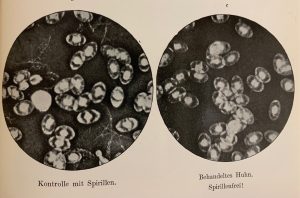In May 2023, we welcomed you to the brand-new Falk Library entrance and renovated space, as unveiled with the West Wing construction project. In the meantime, a significant portion of the library underwent a renovation phase to offer both innovative and most-loved library experiences in our physical space. With the library whole again on Monday, November 11, visitors can use an expanded array of services and resources, including:
- Individual study spaces with study carrels, some in designated quiet study areas
- Open group study spaces at tables and booths
- Return of the General Collection, Medical Humanities Collection, and Leisure Reading books
- Additional technology areas, including accessibility hardware and software
- More small consultation rooms, which are reservable along with the larger group study rooms
- Rare Book Room, featuring rotating displays of historic books and artifacts, along with more open hours for visitors
- Nancy Tannery Conference Room, a meeting room with modern display technology that repurposes the mid-century finishings from the former history of medicine reading room
- Falk Library also now houses the Health Sciences Emergent Tech Lab as well as a state-of-the-art recording studio, thanks to a partnership with Health Sciences IT. You can learn more about these new new resources in this issue of the HSLS Update.

